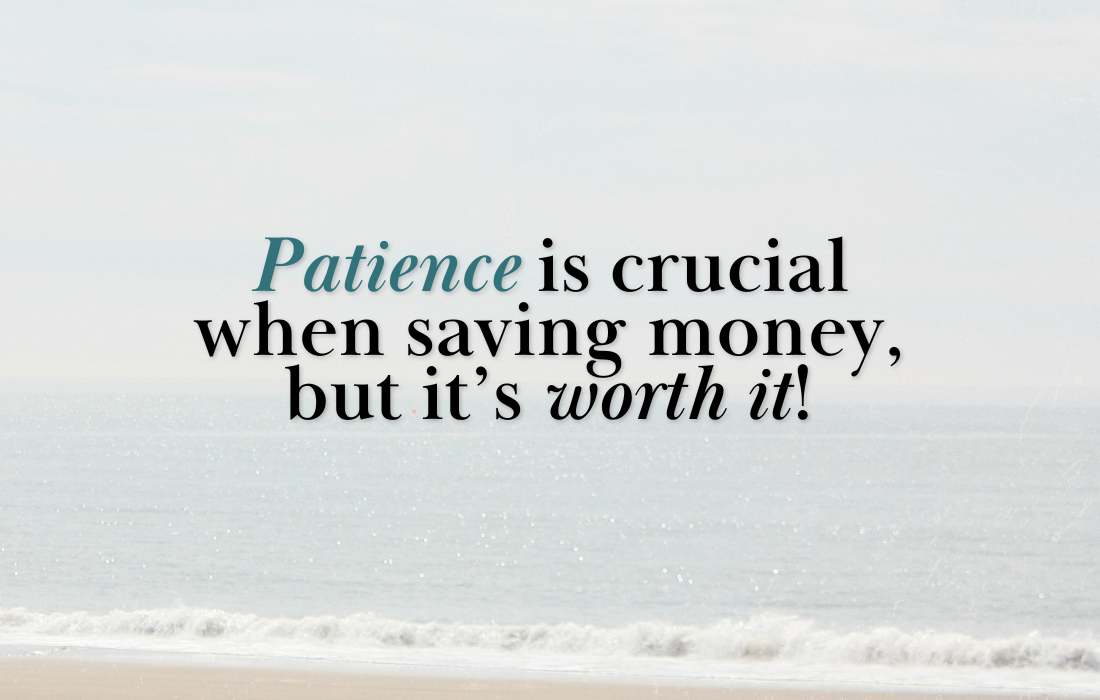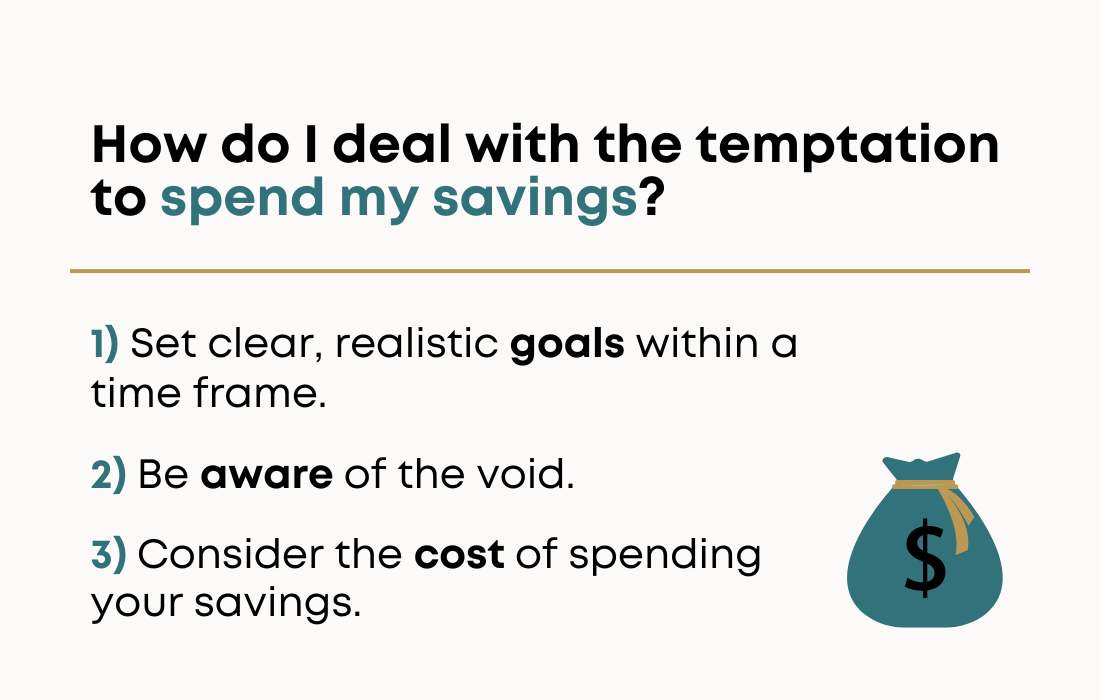How You Can Be More Patient When Saving Money
If you’re wondering how to be patient when saving money, keep reading! In this post, I’m going to share how I’ve increased my patience so that I’m better able to save money. And I’ll give you three tips that will help you deal with temptation.

Written By Tiffany Woodfield, Financial Coach, TEP®, CRPC®, CIM®
How I’ve Increased My Ability to Save Money and Be Patient
Life is busy, and we’re constantly bombarded with new things that promise to make us feel better, more energized and fulfilled.
On top of that, most people are drained because so much is coming at them and on their to-do lists. We just want a pick-me-up to make the day or week easier and make us feel lighter, so we indulge and buy something and feel momentarily better.
But then it’s gone, and we’re in the same cycle of needing another “hit” to lighten our day or week. This was the treadmill I was on, and I still catch myself today, although much less.
What has helped me is to pause and acknowledge to myself how I am feeling. Then, I will get curious about why I am making a purchase and whether it will solve my internal feeling of lack.
It was difficult at first because I was calling myself out on my own behaviour.
However, by asking myself this question, I became accountable for my actions and felt I could refuse an impulse purchase. I had more patience and wasn’t so likely to make an impulse buy.
As a bonus, doing this enables me to recognize when I am feeling burned out and need to nurture myself, which is something a purchase won’t do.

How can I practice patience while saving money?
To be successful at saving money, you need to acknowledge that it’s difficult to be patient and choose strategies to help you stay on course.
Patience is crucial when saving money, but it’s worth it! By delaying gratification, you have more to show for it in the end.
For example, that really cute purchase may fill your cup now, but what are you giving up to have that now?
Psychologically, we’re motivated by an instant “rush” of feeling good or a “fear” of loss or missing out. You need to set achievable goals and make these so clear in your mind that you don’t get swept up by the desire to get an instant rush.
Getting really clear about how it will feel when you have what you desire, whether that be a trip you have always wanted to go on or a new home, will make it easier to forgo spending today as you save for the future.

How do I deal with the temptation to spend my savings?
To deal with the temptation to spend your savings, you need to follow these steps:
1 – Set clear, realistic goals within a time frame.
For example, saving for retirement isn’t specific enough.
Instead, detail when you want to retire, how much money you need, and how to achieve this. That is the logical part covered now; you must tap into your emotions to be motivated.
Picture what retirement feels like for you.
Are you relaxed and carefree?
Can you choose how to spend your day?
Are you able to spend time cooking, gardening, or traveling?
See yourself living that life.
2 – Be aware of the void.
When temptation comes up, stop and ask yourself if this purchase is to fill a void. Be curious if it really will fill that void for longer than a day or week.
3 – Consider the “cost” of spending your savings.
Make the “fear” of missing out on your goal greater than the “rush” of spending money now.

How can I make saving money more exciting or rewarding?
The only way to save money is not to spend money, and let’s be honest, putting money into a savings account isn’t as exciting as buying a new cell phone or pair of shoes. So, you need to make saving rewarding by setting a few milestones and rewards along the way.
Think of creative ways that you can reward yourself as you save up to certain financial milestones.
Fun fact: Spending money on something you want without guilt feels WAY better than buying something on impulse (and then feeling guilty).
Why is patience important in saving money?
It takes time and dedication to save mone, which requires plenty of patience!
But the longer you save, the more opportunities you will have in the future. Your savings can grow and compound, giving you the freedom to choose what to do with your time and energy.
How can I stay motivated to save over a long period?
Create smaller milestones with little rewards along the way to keep you motivated over a long period.
What are effective ways to track my saving progress?
There are many approaches to tracking your progress.
Some of the easiest ways to track your savings are through apps on your phone, creating an Excel spreadsheet, or using a visual board you have pinned where you see it daily.
How can I balance immediate needs with long-term savings?
The best way to balance immediate needs with long-term sayings is the 50–30-20 budgeting rule.
Following this rule, 50% of your after-tax income goes to needs, 30% to wants and 20% to savings and debt repayment.
Get the Free Guide and Audio Meditation for Manifesting Your Dreams
Pop your email address in the form below to get my easy checklist and guide to manifesting and the guided audio meditation to help you get started.
You’ll also get one or two emails per month with the latest blog posts about abundance, wealth-building, manifesting, and creating a fulfilling life.
Related Articles
💎 How To Become Good at Saving Money
💎 The Mindset of Money and How To Get Rich
💎 How To Get Your Mind in the Mindset of Saving Money
About the Author

TIFFANY WOODFIELD is a financial coach, cross-border expert, and the co-founder of SWAN Wealth based out of Kelowna, BC. As a TEP and associate portfolio manager, Tiffany has extensive experience working with successful professionals who want to leave a legacy and enjoy an adventurous, work-optional lifestyle. Tiffany combines extensive knowledge from her background as a financial professional with coaching and her passion for personal development to help her clients create a unique path that allows them to live their fullest potential. Tiffany has been a regular contributor to Bloomberg TV and has been interviewed by national and international publications, including the Globe and Mail and Barron’s.